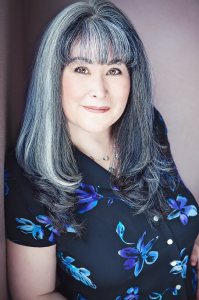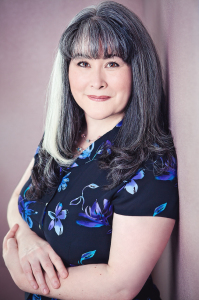
by Jenna | Jul 26, 2017 | Writing Articles
Last week I shared Part I of this post about the many faces of procrastination, and the underlying reasons it shows up. It's not necessarily "just" writer's block or laziness, which are the common explanations I hear.
There are actually a number of variations on the theme of procrastination, and it's usually driven by something deeper, like feeling stuck, being overwhelmed, being hooked by perfectionism, or wrestling with past creative wounds that need addressing -- some of the examples I wrote about last week.
Let's look at a few more of these writing-stoppers that show up as procrastination.
You're creatively confused.
Creative confusion is one of the most fascinating causes for procrastination I've come across (perhaps because it's one of my personal "favorites"). Creative confusion will have you spinning in circles, not sure which direction to go with your story, considering multiple ideas and perspectives, and feeling unable to decide among them. It's as if everything suddenly has equal value and there's no differentiating them.
Part of the issue here is empowerment. When you forget that you're the architect of your story and that there's not necessarily a "right" way to write it, it's easy to get confused. Confusion can also be a smokescreen for the fear that you'll get it "wrong."
Antidotes: Make the shift into action by being willing to do the work of sorting through your ideas by putting them on paper and evaluating them as objectively as you can. One of the ways creative confusion keeps you stuck is that it all happens very quickly in your head. Get it down, and figure it out. And remember that you're the one in charge. It can also be helpful to talk it through with a trusted coach or writing pal who has your story's best interests at heart (not her ideas for what you "should" do).
You're feeling apathetic about your book (or script).
Creative boredom or apathy is another one of these super tricksters that can keep you locked into procrastination. You don't write because it feels like you've "just lost interest" in your story. Interestingly, this usually happens when you've just hit (or are about to hit) a major milestone with your story, or you're about to tackle the next stage. What's happening here is that a new level of fear is cropping up and putting the brakes on to minimize your risks of failure.
In other words, it ain't about the story.
Antidotes: Keep on keeping on. The only way out is through. While there may be passages in your book that are need work, that's a storytelling problem, not "time to give up on the whole project" problem. This is the place to commit to finishing, no matter what.
This is also a great time to remind yourself of your Why for the project -- why you started writing it in the first place. Sometimes just tracking back to the Why will be enough to get you in action again.
You're having trouble deciding which book to write.
This kind of procrastination turns up when you know you want to write or feel ready to write but you can't decide which story to work on, or you decide on one, only to change your mind in short order, usually telling yourself it's not good enough in some way, then look around for something else to work on, only to dismiss that one too. And the next one after that.
This kind of procrastination can also look like coming up with a bazillion ideas to work with but not being able to choose among them.
Antidotes: Check out my free downloadable guide about how to choose your next book (or script) using decision criteria and intuitive decision-making skills. You can also try one of my favorite bits of Steven Pressfield's wisdom, which is to "figure out what scares you the most, and do that first."
(If, on the other hand, you're totally drawing a blank for any ideas at all, try Elizabeth Gilbert's approach of paying attention to your faintest whispers of curiosity and see where they lead you.)
You've fallen out of the habit of writing and each day that goes by, it gets harder to restart.
If your writing practice has fallen apart -- for whatever reason -- procrastination has taken hold and it's just not getting any better. Each day you tell yourself you're going to write, but find endless distractions around the house, get caught up in work (or TV or candy crush!), tasks to take care of, or toilets to clean. This is "garden variety" procrastination in my book, but it's still a doozy.
Antidotes: Set a very small writing goal and meet it. Then do it again the next day. And the next. Keep going until you have the practice in place. Troubleshoot any obstacles that come up -- like falling into reading email or getting sucked into other tasks -- and find ways to streamline your path to your writing desk each day. If you set a goal, and you're still procrastinating, make the goal smaller until you actually do it. Get accountability to help you with this if you need it. (Work with me 1:1, for example.)
You're dealing with big personal changes.
Look, sometimes big life events happen and the idea of tackling writing at the same time feels (and may even be) impossible. Major illnesses, weddings, new romances, births, deaths, break ups, divorces, moves, and job changes are life changes that can get in the way of writing and then morph into "regular" procrastination even once the dust has settled. It's okay. It happens. But it's helpful to know how to deal with it when a big part of your identity is tied into being a writer and you start losing your sense of self while it's all happening, and then wonder who you are when it's done.
Antidotes: Be patient with yourself during the upheaval, and give yourself a little time for re-entry. You may want to have a "maintenance practice" of writing morning pages in place during these times, even as a placeholder until you can get back to your book or script writing efforts. Have a plan in place for how and when you'll reboot your writing once you've made it through the thick of the experience. If you find yourself still struggling with your identity after the fact, do some journaling or coaching work to help get you back in touch with yourself as a writer.
You're an adrenaline addict.
One of the most fascinating parlor tricks I see writers engaging in is creating an endless series of non-writing emergencies, deadlines, and disasters that make it impossible to write. This is procrastination at its peak form, because it becomes inarguable. Whatever "it" is, has become such an emergency, that it has to be done right now. At this point, it actually does. But when a writer lives this way, chasing from disaster to disaster, writing always gets to stay (safely) at the bottom of the pile.
The trickiest trick of all is that the purveyor of these hijinks deep down revels in the sense of excitement and in being the rescuer of the situation from certain doom. It turns out, writers who do this to themselves are addicted to the rush of it all, and they'll even design it so they "get" to write this way too (at the last minute, in a mad panicked rush).
This strategy does two things. It's a brilliant way of getting off the hook for doing your best work, because you simply can't, not with all those emergencies to take care of. It's also very clever way of getting an adrenaline boost of energy to face the terror of writing.
Antidotes: Admit the addiction. Make a conscious choice to stop this behavior. Learn to pace yourself -- with everything, including your writing -- and get ruthless about cutting out anything and everything you don't have to do. You don't have to do everything and you don't have to do it all perfectly. Cut some corners!
You're just plain tired.
Maybe you're not exhausted, but "just" tired. Maybe you haven't reached the point of creative burnout, like I mentioned last week, but maybe you have other non-writing commitments that tax you. Some of these are avoidable (volunteering for committees) and some are not (having little kids or an aging parent), but either way you're tired. This tiredness becomes an excellent excuse for procrastinating. "I'm tired," you say. "I just don't have it in me today to write. I'll do it tomorrow."
Antidotes: I've always loved the quote from David Whyte on this subject, “You know that the antidote to exhaustion is not necessarily rest? … The antidote to exhaustion is wholeheartedness.” When it comes to the daily sort of tiredness that can leave us feeling run down (as opposed to massively burned out), writing regularly -- even just in small amounts -- is often the cure. Also, take a look at how you're investing your precious life energy and see where there might be energy leaks you can shore up. Look for where you're not feeling a "Hell, yes!" about the things you've committed to and think about letting them go. Work with a friend or coach to inventory your commitments and see what you can release for someone else to handle.
Photo by Igor Ovsyannykov on Unsplash

by Jenna | Jul 19, 2017 | Writing Articles
When I work with writers to help them stop procrastinating, usually they don't quite know why they're doing it. They often end up labeling it as laziness or writer's block. I can tell you that I've never met a truly lazy writer, and while I certainly have met some who are blocked, sometimes a little delving is required to uncover the deeper issues that are stopping them from writing.
Let's talk about the spectrum of writing-stoppers that show up as procrastination.
You're stuck.
You might find yourself procrastinating when you're stuck. Maybe you've hit a section you aren't sure how to deal with, or you need to rewrite some or all of your draft but you're not sure where to start, so you just... don't. This stuckness doesn't take long to turn into procrastination, and soon, to full on avoidance.
Antidotes: Sometimes when you're stuck, you need help to get going again. A plot coach or a writing friend often comes in handy here. Alternatively, you might want to write about the writing -- this is a great time for some journaling and brainstorming to unlock your writing energy and ideas.
You're overwhelmed.
Sometimes the sheer volume of work facing you will cause you to procrastinate. When you're looking at a mountain, it's hard not to feel the weight of it bearing down on you.
Antidotes: The antidote for overwhelm is to find one small step to take. In other words, what's the first thing you can think of, no matter how small, that you know you can do now? Then do the next thing. This is a great time to pick easy things to do too, because when you're feeling overwhelmed, easy makes it doable. Sometimes I'll just work on formatting for a bit to get myself back into the project, no matter how fiddly it is. No step forward is too small.
You've been hooked by perfectionism.
When you get stuck in believing that you must make your writing perfect or get caught up in visions of this being your biggest hit ever, you'll be triggering procrastination faster than you might believe. Perfectionism, procrastination, and paralysis work together to create a vicious cycle that keeps you from writing, ever. Perfectionism is funny way of staying safe too, because if you don't write it, you don't have to see it being flawed and imperfect, nor can you be ridiculed for it.
Antidotes: Make peace with being an imperfect human being who values writing and finishing more than telling yourself whoppers about incredible success or massive failure that hold you back. Embrace the notion that only the divine is perfect, and decide that messy and done is so much better than not writing.
Your inner critic is freaking out.
When the voice of your inner critic starts getting loud and scary, it's hard to keep writing, especially if you listen to it as if it's the voice of truth and reason, rather than simply a terrified guard dog it trying to keep you safe. Also note that this voice will get louder and scarier the closer you are to the precipice of taking action, finishing a draft, or moving into a new level of your career. If those aren't reasons to procrastinate, I don't know what is!
Antidotes: First, pat your inner critic on the head and tell him/her that you're going to take care of everything, you got this, and you don't need any help protecting yourself. Then, one by one, rewrite the negative self-messages that swirl through your mind while you're writing into positive, believable statements. Having a coach or witness for this work helps it land more deeply and take root in your psyche in a positive way.
You've gotten feedback on your work and it's affecting you.
Good feedback, bad feedback. Feedback period. All feedback affects us. It's an energetic shock to the system that's hard to absorb. We've been tenderly entwined with our beloved writing only to have it held at arm's length by a stranger who cooly evaluates it. The stun from this can send you into a tailspin. And good feedback? Glowing feedback on your early chapters? That can be a recipe for triggering perfectionism and the anti-creativity cycle too, because suddenly you have to measure up to your existing work and you might not believe you can.
Antidotes: After giving yourself some time to recover from getting the feedback, take a deep, deep breath. Remind yourself who is in charge. (That would be you.) Evaluate the feedback as cooly as it evaluates your book. What do you agree with? Use that. What do you disagree with? Throw it out or save it for later re-evaluation.
You're deeply exhausted and you're self-protecting.
Sometimes you may procrastinate because you're actually deeply tired or burned out, and reflexively protecting yourself from overextending. This may be the result of binge writing, pushing to meet deadline after deadline, or from being exhausted by a non-writing life circumstance.
Antidotes: Rest. Write for the love of it, if you're called to do so, but make it easy, like journaling, and give yourself some time to recover. You will feel the call to write again. Trust me.
You're dealing with a creative wound that needs addressing.
When you're not writing... and not writing... and not writing... and it's just going on forever, sometimes there are deeper creative wounds that have gotten triggered and need addressing. Like that time you were ridiculed for daring to make art and express yourself creatively. Or how you were raised in a family culture that taught you that writing would never pay your bills and you were a fool if you pursued it. Or the scathing feedback you received from someone you deeply loved. Events like these leave open wounds in our psyches, like ghosts in the machine.
Antidotes: Revisit the events in a safe way (such as through visualization or journaling) so you can find the truth in the experience from a broader spiritual perspective. From there, you'll be able to begin to find forgiveness for yourself and peace with the experience. Often these experiences happen to us when we are young, and having our more mature perspective helps us begin to shift how we feel about it now. While you can do this work on your own, working with a coach or witness who can hold a safe space while you're processing what happened can accelerate your growth and ability to move past the pain.
And there's more...
There are many more underlying reasons for procrastination, including creative apathy, confusion, adrenaline addictions, and more. Read Part II, here.
Photo by Igor Ovsyannykov on Unsplash

by Jenna | Jun 14, 2017 | Writing Articles
It's that time of year again... summer!
The days are getting longer, the weather is warmer, kids and teachers are out for the summer, and vacation season is here. There are so many reasons to put down your pen and turn off your computer and go outside... which I highly recommend.
All work and no play isn't good for a writer's soul, after all.
And, at the same time, you'll want to keep writing so you don't lose your writing momentum or end up finishing summer feeling disappointed about where you are in your draft.
Here are five tips for making the most of your summer writing, while still enjoying the play time you need and deserve.
#1. Remember Why You Love Writing
While it's highly useful to treat your writing with as much care and attention as you would a professional job... when we're in the middle of this expansive summer energy, it's a good time to remind ourselves that we're also doing this because we LOVE it.
This helps create a more natural fit between the part of us that wants to have delicious summer adventures and the romantic side of our writing dreams. To that end, even while you're putting your head down to write, play with matching your summer energy to your writing energy. You might light candles while you work, write in a café, or take your notebook to the beach. This is a great time of year to indulge your most vivid writing life dreams and make it fun.
#2. Be Aware of Magical Thinking
Over the last couple of weeks as I've developed our summer plans, I've found myself imagining doing a big chunk of writing on one of our vacations... And doing a big chunk of studying on one of our vacations... And maybe writing some promotional copy on one of our vacations.... and all of these on the SAME vacation. Talk about magical thinking! Even if I actually wanted to write and/or work during a trip (I don't), I certainly can't accomplish all of those things and have the time I want to have with my family. Sure, I could probably finagle an early morning writing session before they awaken, but I want my vacation for vacationing.
Similarly, it's easy to imagine that you'll have so much extra time during the summer that you'll be able to make wild progress on your work. I think this might be a holdover from when we were all in elementary school and summers seem to last forever and we have nothing to do... just the way we imagine that a new year will suddenly have so much more free time than we had in the last one. But we don't. Even if you're a teacher with the summer "off," your days will quickly fill with all the things you've put off doing during the school year unless you're mindful about it.
Instead, be realistic about what you can actually accomplish over the course of a summer. See how many days you have to write, and schedule them accordingly with your summer writing goals.
#3. Give Yourself Time to Play
We're way more likely to do our work when we're also giving ourselves time to play, rest, indulge, and enjoy. And since summer naturally lends itself to those things, it helps to set up a nicely balanced bargain between the two.
I find that writing as early as possible during the day allows me to have guilt-free down time and playtime in the afternoons, just as I find that when I'm writing when I'm home, I feel good about enjoying my vacations fully while I'm away instead of feeling guilty that I "should" be doing more.
Work hard, play hard, is an adage that fits the bill here... but you have to actually deliver on the play time to make this work.
#4. Plan for Reentry
Taking time off from writing -- generally anything more than 1 to 2 days off -- tends to create a bumpy "reentry" back into it. So if you go away for a long weekend or a vacation, think about how you'll reboot yourself with your writing when you get back.
In my community, we advise our writers to "go back to the beginning" of working in small increments of writing time if resistance kicks in when it's time to pick the writing back up. A little accountability goes a long way here too (we offer this in the writing community if you need help).
So if you return from time away and find yourself struggling to get back into your book (or script), try writing for just 5 to 15 minutes to jump start yourself again. You can increase the time over the coming days as rapidly as feels doable to you until you're back to your normal routine.
Use this guideline: The more resistance, the smaller the amount of writing time.
#5. Have Fun, and Be Ready for Anything
Summer can be an "all bets are off" season. Between kids at home, weather variations, vacations, out of town guests, extra summer projects, and our own impulses to celebrate the summer, a lot can get in the way of writing.
The more you can be ready to roll with it -- to have fun with it even, like you're playing a "I wonder how much writing I can pull off this summer" game -- the easier it is.
I find that a lot of this is about your mental attitude -- if you're expecting your summer to be just like the rest of the year, you're more likely to get thrown off track. On the other hand, if you take an attitude that things are going to be more up in the air, you'll be more ready to take the writing time when it comes and just run with it. You'll also be more likely to have contingency plans ready to go if something comes up, like having a portable writing kit, a flexible schedule, or a backup writing time slot later in the day if your morning writing gets interrupted.
Have fun, writers, and happy summer!
You may also like:

by Jenna | May 9, 2017 | Guest Posts
And we're back! It's time for the next installment of our "Author Insights" series. In this series, I'm introducing you to writers who've taken their writing all the way to the finish line of publication, and they share their "lessons learned" with you. There's nothing quite like learning from a writer who has made to the other side.
Plus, if you leave a comment at the end of the post before Friday, May 12th at 5 p.m. Pacific Time, you'll be entered to win an autographed copy of the author's book in a random drawing. Please note that you must be located in the United States to win.
Meet Elaine La Joie, author of The Empath as Archetype
I'm thrilled to introduce you to Elaine La Joie. Elaine and I have worked together in various ways over the past 15 years since we first met after attending the same coach training program. Elaine has gone on to become not only a coach but is now also a shaman, who specializes in working with empaths. Elaine has chosen the self-publishing path and has put out five books, now bundled into one in the The Empath as Archetype. Her books are particularly valuable for sensitives and empaths who find themselves stuck in challenging relationship situations. Being a shaman and an expert in the Enneagram Four, Elaine always brings a higher view of relationship interactions I find illuminating and freeing.
I asked Elaine to share her insights about writing her books with us.

Elaine La Joie on Writing The Empath as Archetype

I had wanted to write ever since I was a child, but I always thought I’d write fiction. However, after coaching empaths for a few years I found myself writing non-fiction.
At first I wrote short essays for my blog about topics that came up during client sessions that I thought most empaths would appreciate.
Then, as I expanded my knowledge base from plain coaching to the Enneagram to shamanic energy work, I found myself explaining these concepts to new clients, which took too much time away from diving into the healing work, so I decided to write a guide that clients could read before they started working with me.
Structuring a Complicated, Massive Topic
However, the book I imagined was complicated. I was bringing together topics from the Enneagram, shamanic energy work, and archetypes, and then writing specifically for the empath archetype. It was overwhelming.
Instead of writing I found myself spending time thinking about how to arrange this massive treatise, which led to frustration and procrastination. I solved this by going back to observing my clients and what we needed to unravel and work on first before major progress could be made.
This helped me see the three disparate topics my clients needed to understand before they could achieve deep healing and shift their ingrained patterns, and I organized my work accordingly. I wrote three books about the archetypal drama triangle, which is particularly problematic for the sensitive empath, shamanic energy work, and the enneagram archetype of the empath. I published these on my website.
Navigating Expanding My Reach with Amazon
Once I had self-published the books on my site, I had a few sales, mostly from new clients and others curious about my work. The feedback was good, but small. I kept writing, this time shifting to major case studies with the assumption that the reader had absorbed the concepts in the first three little books.
Because I wanted to expand my reach, I started looking into how to upload my books to Amazon. Luckily by the time I was ready to publish on Amazon, they had made the process relatively straightforward and free with both their digital system (Kindle) and their softcover publisher (CreateSpace).
But I noticed that I was procrastinating again—the thought of having my books reviewed by the general public was for the most part scary and unappealing.
Making Peace With the Possibility of Bad Reviews
My books were written for a very specific audience, an empath who wants to change his or her life. A non-empath would not understand these books. An empath that was interested but not ready to look at the shadow work required to heal themselves would most definitely find my books upsetting. They might leave rotten reviews. In many ways I felt like I was setting myself up to be misunderstood and misrepresented.
At the same time, I knew this work would be helpful to that segment of the population of empaths who were ready to dive in and do the deep healing work.
So, I had to prepare to get bad reviews. I made two shifts with my thinking that helped tremendously:
- I made a conscious decision not to take any reviews personally and to trust the work would reach the audience for whom it was intended. Because I am an empath, and empaths tend to take everything personally, I had to remind myself that my feelings in the moment would pass; I should honor my feelings, but not take them too seriously, even the happy feelings around good reviews. This helped me be both less attached to good reviews and less fearful of bad reviews.
- I reminded myself that personal work for anyone is very difficult, and that it is a common human behavior to shoot the messenger. My work is all about being the messenger for people who are hurting and wanting to heal themselves. In doing one-on-one work with clients, it is relatively easy to match my client and maintain a relationship that works for both of us, but every once in a while a client tries to shoot the messenger. It doesn't happen often because we have built up a relationship of acceptance and trust, but when it does, I don't take it personally because I understand the nature of healing work and the role of the shaman. Once I started thinking of my writing as working one-on-one with my favorite clients as my audience, it was easier and less scary to move forward. However, because I wasn’t really working one-on-one with each reader, it was guaranteed that I would be shot down at least one time out of ten.
Luckily for me, most of my readers so far have wanted to do the work, so most of my reviews on Amazon have been very good. Many empaths can be shy, so I receive much more positive feedback through emails than through reviews, which is also heartening. There are awful reviews as well, such as one from a reader who gave my last book one star after starting with it first instead of last. This person did not to read the other books, but gave them all one star reviews anyway. This was both amusing and upsetting at the same time, but in the grand scheme of things, the work is out there, and people can take it or leave it, just as they take or leave one-on-one session work.
Overall my writing experience has been a very good one. I have been very lucky to have a niche in which to write. I also entered self-publishing right when the process became easy and straight forward.
As it turned out, the literal process of self-publishing was easy—the hardest step was moving past my fears and putting the work out there.
About The Empath as Archetype
 The Empath as Archetype contains the first five volumes of The Empath as Archetype series by Elaine La Joie, including:
The Empath as Archetype contains the first five volumes of The Empath as Archetype series by Elaine La Joie, including:
- The Empath and the Archetypal Drama Triangle
- The Empath and Shamanic Energy Work
- Motivations of the Empath
- The Empath and Shadow Work
- The Empath and the Fan-Hero Family System
These books, written over seven years, are a compilation of case studies of Elaine's clients, and are now available in this collected edition.
Elaine begins with the Archetypal Drama Triangle, explaining the most common archetypal system humans can be caught in, but gives examples particular to empaths. She moves on to describing shamanic techniques including Soul Retrieval and Underworld Work, used in her practice to help her clients heal wounds common to empaths. Next comes a description of the most typical blindspots and faulty beliefs for empaths as described by the Enneagram Type Four and how to change to more productive beliefs and behaviors. In the final two volumes she explains particularly troublesome relationships in which empaths can become entangled, including the common family system that can produce the narcissistic personality.
The Empath as Archetype is available on Amazon.com.*
About Elaine
 Elaine La Joie, shaman and certified life coach, has worked with empaths and highly sensitive intuitives for more than ten years. During that time she has helped empaths understand themselves and their relationships while using shamanic energy healing to resolve past traumas, including severe abuse. These books offer empaths insight into their relationship and into the hidden motivations of themselves and others so that they can understand their loved ones and create the lives they truly desire.
Elaine La Joie, shaman and certified life coach, has worked with empaths and highly sensitive intuitives for more than ten years. During that time she has helped empaths understand themselves and their relationships while using shamanic energy healing to resolve past traumas, including severe abuse. These books offer empaths insight into their relationship and into the hidden motivations of themselves and others so that they can understand their loved ones and create the lives they truly desire.
Please visit Elaine’s website at https://secure.clearreflectioncoaching.com for more resources for empaths.

Enter to Win an Autographed Copy of The Empath as Archetype
Elaine has graciously offered to give away three autographed copies of her book to my readers. Leave a comment on the blog about one of your own writing lessons or something you learned from Elaine's insights before Friday, May 12th at 5 p.m. Pacific Time and you'll be entered in the random drawing. Please note, you must be located in the United States to win.
* This is an affiliate link, which means my Called to Write business receives a small commission from any purchases you make using this link, and which I deeply appreciate.

by Jenna | May 3, 2017 | Writing Articles
When you imagine yourself into your own future writing success, how does it feel? Is it exciting but terrifying, all at once? Do you imagine yourself changed irrevocably by your fame and fortune? Do you sense yourself being overwhelmed by attention, energy, and even money? Will you still be a good person?
Will success change you?
A Sneaky Kind of Resistance
I’ve seen in myself and others this terror of success manifesting as a very sneaky kind of resistance. We self-sabotage because we’re afraid we can’t handle the success. Another way to think of this is as an “upper limit problem,” where you thwart your future success by imploding in the here and now, even in the smallest of ways.
Does “I just don’t feel like writing today” ring any bells?
Under the terror is a fear of losing your very sense of self as a result of being successful. As if you'll be so overloaded with the intensity of success that you’ll transform into chaotic energy that floats you away into nothingness.
Sometimes we stop ourselves from writing because we’re afraid to fail.
And sometimes we stop ourselves because we’re afraid to succeed.
Symptoms of a Fear of Success
It could be as simple as procrastinating or being a perfectionist, but it might also look like taking on so many tasks that you can’t write, failing to do your best work, stopping just short of finishing project after project, fearing that you'll betray your loved ones if you succeed or are happy, or even allowing emergencies to erupt and backlogged work to accumulate so you can’t write (or write well) because you have too many demands on your time, space, and energy.
Interesting how those symptoms match both a fear of failure and a fear of success, isn't it?
Addressing a Fear of Success
But the solution for moving past the fear lies in understanding which fear it is.
Having a fear of failure means needing to adjust your mindset about what failure means.
If you're struggling with a fear of success, though, the solution lies in bringing yourself into the here and now, into this moment, right now, reading this piece with me, and remembering that you get to decide how to handle your life. You’re the author of your present, and your future. You get to practice being grounded, centered, present, and calm, right now, right here. You get to make decisions and plans for your money, time, and energy now, so that when success arrives you're well prepared for it.
So just breathe with me, right now. Notice the air, the light, the sounds around you. Take a deep inhale, and then let it go. You don’t have to worry about the future right now, because you're getting ready to be your future self, one step at a time.
Your job, right now, is to calm and soothe yourself. To bring your attention back to the work you’re doing right now. The learning you’re having right now. One step at a time.
Enjoy it.

You may also like:







 Elaine La Joie, shaman and certified life coach, has worked with empaths and highly sensitive intuitives for more than ten years. During that time she has helped empaths understand themselves and their relationships while using shamanic energy healing to resolve past traumas, including severe abuse. These books offer empaths insight into their relationship and into the hidden motivations of themselves and others so that they can understand their loved ones and create the lives they truly desire.
Elaine La Joie, shaman and certified life coach, has worked with empaths and highly sensitive intuitives for more than ten years. During that time she has helped empaths understand themselves and their relationships while using shamanic energy healing to resolve past traumas, including severe abuse. These books offer empaths insight into their relationship and into the hidden motivations of themselves and others so that they can understand their loved ones and create the lives they truly desire.